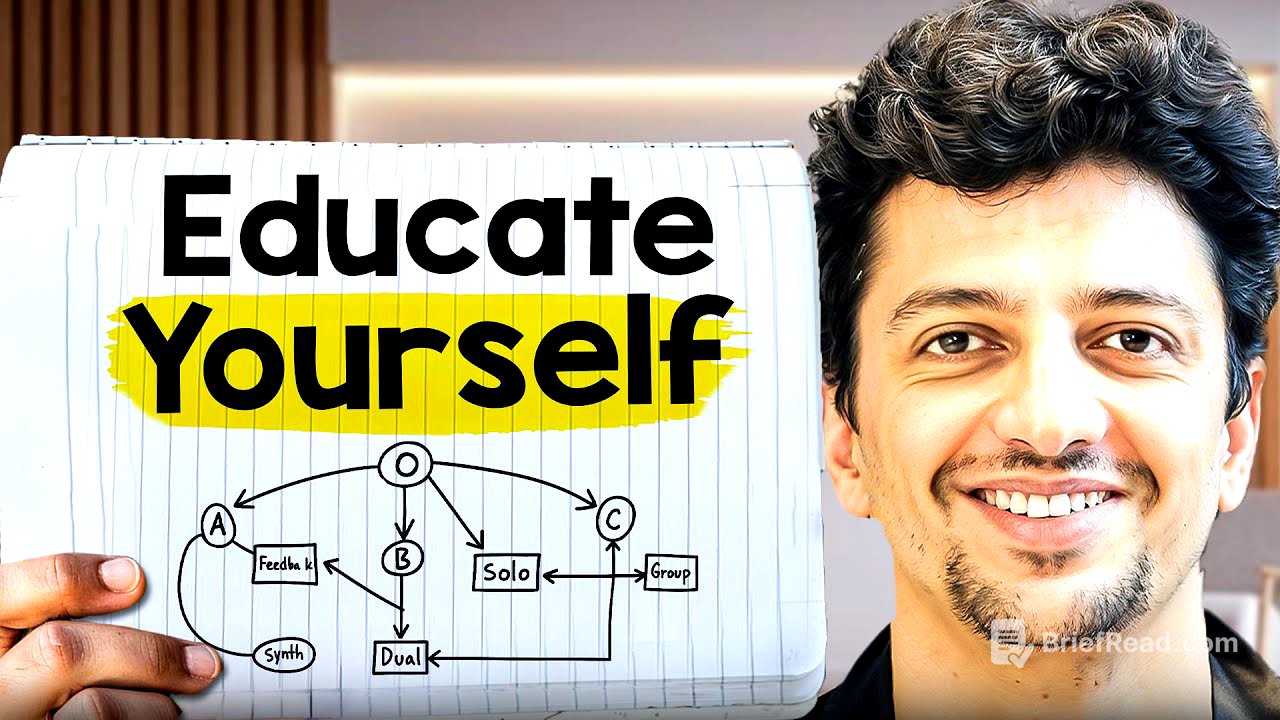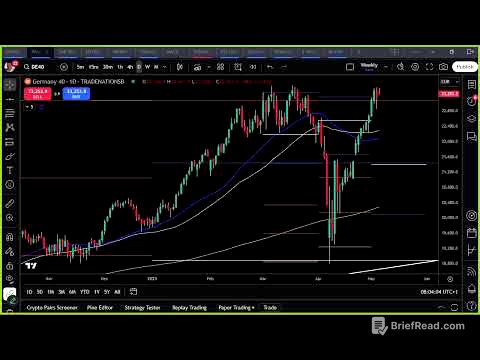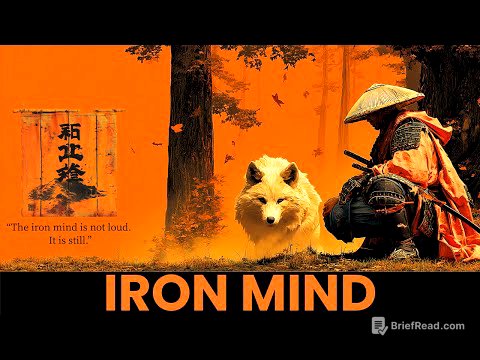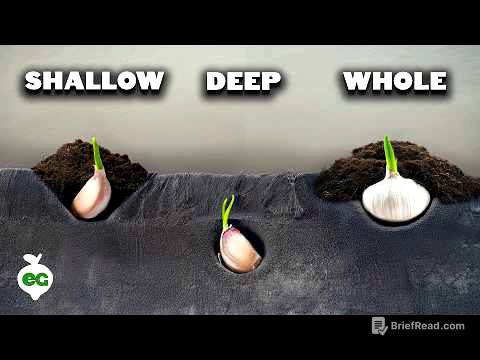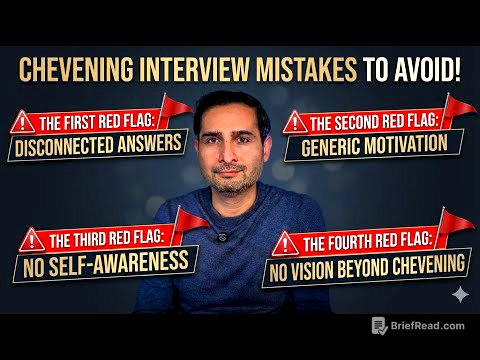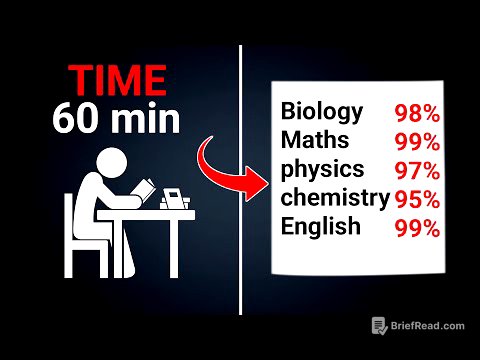TLDR;
This video discusses the importance of lifelong learning and adapting to technological changes to remain relevant in the job market. It uses historical examples, such as the printing and textile industries, to illustrate how technology can disrupt jobs but also create new opportunities. The video highlights project-based learning (PBL) as an effective method for acquiring new skills and knowledge, using the story of Demis Hassabis and DeepMind's AI projects as a prime example. The key takeaways include the need for continuous self-improvement, the benefits of PBL, and the potential for AI to solve complex real-world problems.
- Technology changes jobs, but creates new opportunities.
- Lifelong learning is essential for staying relevant.
- Project-based learning (PBL) is an effective method for acquiring new skills.
- AI has the potential to solve complex real-world problems.
The Typesetter's Story: How Jobs Used to Work [0:00]
The video starts by illustrating the laborious process of typesetting in the 1940s, where a typesetter would spend an entire day manually creating letters for a single page of a book. Similarly, animators working on Mickey Mouse movies had to create individual paintings for each frame. These jobs required significant effort and time, making books and movies expensive and time-consuming to produce.
Arrival of Computers & First Wave of Disruption [1:50]
The introduction of computers brought a wave of disruption, significantly impacting the printing industry. The number of typists decreased drastically from 80,000 to 20,000 as computers automated many tasks. While some people lost their jobs, those who adapted and learned new skills, such as graphic design and desktop publishing, were able to find new opportunities. This new technology eliminated old jobs but created new ones, rewarding those who embraced self-learning.
Textile Industry & Job Loss vs Job Creation [3:10]
The video uses the textile industry as another example of how technology can impact jobs. Initially, the textile revolution in 1910 led to automation, reducing the price of clothes and increasing demand, which in turn created more jobs. However, as supply eventually outstripped demand, the industry experienced an inverted U curve, leading to job losses and decreased salaries for mill workers. This example reinforces the need for constant learning and adaptation to remain competitive in the job market.
Lifelong Learning: The Ultimate Survival Skill [4:17]
To save jobs in the face of technological advancements, people need to become constant learners, not only in their own fields but also in other areas. The video then transitions to discussing how to become self-learners and acquire new skills quickly, introducing project-based learning (PBL) as an effective method.
Project-Based Learning (PBL) Explained [4:30]
The video introduces project-based learning (PBL) as a method for quickly learning new skills. PBL involves taking a real-world problem and learning whatever is necessary to solve it. To illustrate the effectiveness of PBL, the video presents the story of Demis Hassabis, a prominent thinker.
Demis Hassabis & DeepMind’s Origin Story [5:15]
Demis Hassabis, born in London in 1976, demonstrated exceptional talent from a young age, playing chess at 4 and creating games at 8. In 2010, he founded DeepMind with the ambitious goal of solving intelligence and creating an Artificial General Intelligence (AGI) by 2030. DeepMind aimed to develop a machine capable of performing all human tasks simultaneously, accelerating innovation and problem-solving.
AlphaGo, StarCraft & Mastering Games with AI [6:13]
To achieve the larger goal of AGI, DeepMind broke it down into smaller, manageable projects. The first goal was to create an AI that could play any game. By 2013, they developed an AI capable of playing Atari games. Following this, DeepMind tackled the game of Go with AlphaGo, which defeated the world's best player, Lee Sedol. They then moved on to StarCraft 2 with AlphaStar, achieving outstanding results in this complex game as well.
Solving Protein Folding with AlphaFold [7:14]
DeepMind then took on the protein folding problem, one of the most challenging questions in biology. By July 2022, Hassabis's team released 200 million protein structures to the world for free, significantly accelerating the development of new medicines and disease research. Hassabis believes that in the next 10 years, they will solve almost every disease, revolutionizing human health. In 2023, DeepMind created another AI tool called Genome, which discovered 20 lakh new crystal materials for use in batteries, solar panels, and advanced electronics.
Real-World Impact of PBL on Innovation [9:11]
The success of Demis Hassabis and his team at DeepMind highlights the effectiveness of project-based learning (PBL). PBL offers several advantages, including clarity, networking opportunities, flexibility to learn any method, and increased confidence. In PBL, learners understand the problem they are trying to solve, can seek help from various sources, and can integrate knowledge from different subjects. This approach fosters confidence and provides practical skills that are highly valued in the real world.
SUMMARY & Final Message: Adapt or Become Irrelevant [10:40]
The video summarizes the key points, starting with the impact of technology on printing jobs and the clothing industry. It emphasizes the importance of updating skills and engaging in self-learning to adapt to changing job markets. The story of Demis Hassabis illustrates how breaking down a large goal into smaller steps and using problem-based learning can lead to significant achievements. The video concludes by highlighting the benefits of PBL, such as clarity, networking, flexibility, and confidence, and reiterates the need for continuous learning and adaptation to remain relevant.
